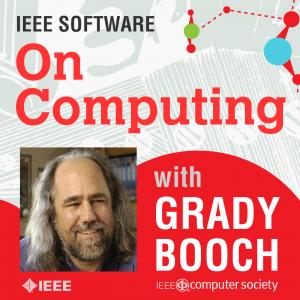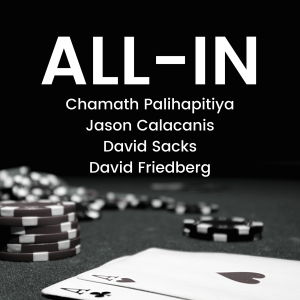

IEEE Software's "On Computing" with Grady Booch
http://feeds.feedburner.com/oncomputingEpisode List

Deus ex Machina
No matter your individual position on the matter, faith is a powerful element of the human experience. Therefore, it comes as no surprise that computing intersects with the story of belief in many ways. Here, we explore computing as a medium for faith, as a ritual space, and as a technology that itself raises certain metaphysical issues.

The Stories of Possibility
There are three things that future generations may never experience: the smell of books, the sound of a computer, and the sanctuary of privacy. These human considerations are all unintended consequences of computing.

The Wonder Years
Grady Booch peers behind the curtain of computing into the mystery behind software-intensive systems. To some, such systems look like magic; to most, the inner workings are irrelevant insofar that they simply work. To those of us behind the curtain, however, we know that such systems are filled with chaos, regularity, and beauty.

In Defense of Boring
On the one hand, we seek to build software-intensive systems that are innovative, elegant, and supremely useful. On the other hand, computing technology as a thing unto itself is not the place of enduring value, and therefore, as computing fills the spaces of our world, it becomes boring. And that’s a very good and desirable thing.

From Minecraft to Minds
The subject of the computability of the mind introduces complex philosophical, ethical, and technical issues. That aside, this topic draws us in to the nature of algorithms. We are surrounded by algorithms; much of the history of computing is also the history of the advance of algorithms. For the public, algorithms are part of computing’s self-made mystery, but to understand their nature is an important part of computational thinking.
Create Your Podcast In Minutes
- Full-featured podcast site
- Unlimited storage and bandwidth
- Comprehensive podcast stats
- Distribute to Apple Podcasts, Spotify, and more
- Make money with your podcast












